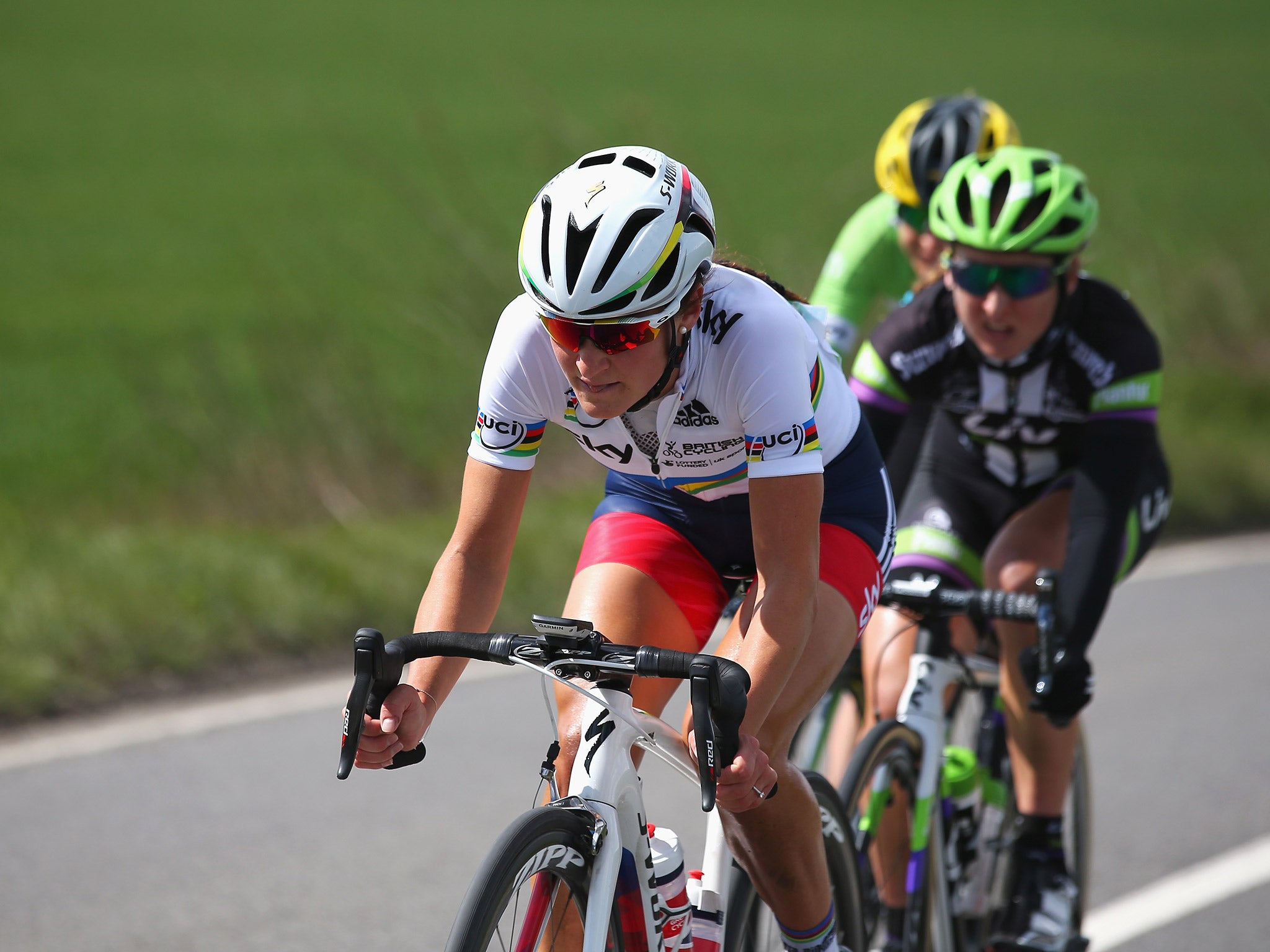Rio 2016: Lizzie Armitstead cleared of anti-doping violation and will compete in women's road race
Armitstead missed three drug tests but had one of them declared void after UK Ant-Doping's control officer failed to follow protocol

Your support helps us to tell the story
From reproductive rights to climate change to Big Tech, The Independent is on the ground when the story is developing. Whether it's investigating the financials of Elon Musk's pro-Trump PAC or producing our latest documentary, 'The A Word', which shines a light on the American women fighting for reproductive rights, we know how important it is to parse out the facts from the messaging.
At such a critical moment in US history, we need reporters on the ground. Your donation allows us to keep sending journalists to speak to both sides of the story.
The Independent is trusted by Americans across the entire political spectrum. And unlike many other quality news outlets, we choose not to lock Americans out of our reporting and analysis with paywalls. We believe quality journalism should be available to everyone, paid for by those who can afford it.
Your support makes all the difference.Lizzie Armitstead has avoided a two-year ban for anti-doping violations relating to whereabouts, clearing her to ride in the Rio Olympics this weekend.
Armitstead was Britain's first medallist of London 2012 four years ago with silver in the road race on The Mall.
She won the Road World Championships in Richmond, United States last September and is hotly fancied for Sunday's road race on the second day of the Rio Games.
But the 27-year-old from Otley, Yorkshire on Monday night revealed she had to contest a possible lengthy suspension for three failures relating to her whereabouts which led to her missing drugs tests.
She appealed to the Court of Arbitration for Sport, which ruled UK Anti-doping's doping control officer had failed to follow procedure and her August 2015 missed test was declared void.
Athletes must make themselves available for testing for one hour each day and inform testers of their location.
Armitstead has two further missed tests on her record and a further absence would lead to a rule violation and sanction.
Armitstead was charged by UKAD with three whereabouts failures on 11 July, leading to a suspension pending disciplinary action.
The first came at a World Cup event in Sweden on 20 August, 2015.
The second was an administrative failure on 5 October, 2015 and the third was a missed test on 9 June, 2016 following "an emergency change of plans due to a serious illness within her family".
Armitstead did not dispute the second two faults, but successfully appealed to CAS over the first missed test.
"CAS ruled that the UKAD doping control officer had not followed required procedures nor made reasonable attempts to locate Armitstead," a statement on behalf of Armitstead read.
"CAS also ruled that there was no negligence on Armitstead's part and that she had followed procedures according to the guidelines."
Armitstead was tested a day after the first missed test, following the race in Sweden.
Earlier on Monday Armitstead was cagey when questioned on her absence from recent races. She was a late withdrawal from La Course by Le Tour, the women's race which took place on July 24, when the Tour de France concluded in Paris.
She expressed relief at CAS' finding.
"I have always been and will always be a clean athlete and have been vocal in my anti-doping stance throughout my career," she said.
"I am pleased that CAS has accepted my position, having provided detailed information demonstrating the situation around my strikes."
UKAD did not address Armitstead's case or criticisms directly.
A UKAD spokeswoman said: "We recognise that mistakes do happen and plans can change at short notice, which is why an athlete can accrue a combination of three missed tests or filing failures in 12 months under the World Anti-Doping Code.
"But athletes have a responsibility to ensure they support and follow the system, or they risk a possible two-year ban."
Christine Ohuruogu, the 2008 Olympic 400 metres champion, was banned for a year following three missed tests in 2006.
PA
Join our commenting forum
Join thought-provoking conversations, follow other Independent readers and see their replies
Comments